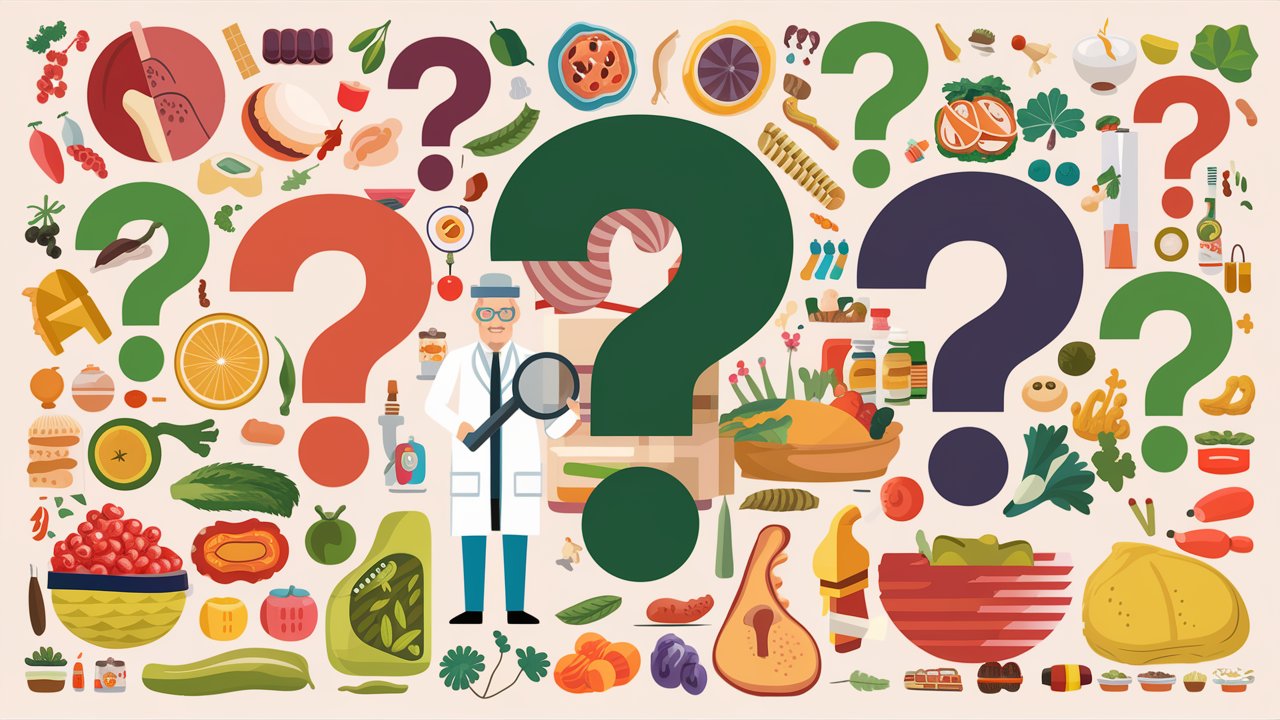
Table of Contents
Do you experience digestive woes like bloating, gas, diarrhea, or constipation after eating certain foods? You might be dealing with food sensitivities, a common yet often misunderstood issue. Unlike food allergies, which trigger a severe immune response, food sensitivities cause a less dramatic but still bothersome reaction in the body. This blog post delves into the world of food sensitivities, equipping you with the knowledge to identify potential culprits behind your digestive discomfort and create a path towards a happier gut.
Food Sensitivities vs. Food Allergies: Understanding the Difference
Food allergies and food sensitivities are often confused, but they are distinct issues. Here’s a breakdown:
- Food Allergy: A food allergy triggers an immune system response involving the release of histamine and other chemicals. Symptoms can be immediate and severe, ranging from skin rashes and swelling to difficulty breathing and anaphylaxis. People with food allergies must strictly avoid the offending food to prevent a reaction.
- Food Sensitivity: Food sensitivities cause a less dramatic reaction. Symptoms can be delayed by hours or even days, making it challenging to pinpoint the trigger. Common symptoms include bloating, gas, diarrhea, constipation, abdominal pain, headaches, fatigue, and skin problems like eczema.
The Intricacies of Food Sensitivities: Unmasking the Underlying Causes
The exact mechanisms behind food sensitivities are still being researched, but several factors are believed to contribute:
- Immune Response: In some cases, the immune system might react mildly to certain foods, leading to inflammatory responses in the gut.
- Digestive Issues: Incomplete digestion of certain foods, like those high in FODMAPs (Fermentable Oligosaccharides, Disaccharides, Monosaccharides, and Polyols), can lead to digestive discomfort.
- Gut Microbiome Imbalance: An imbalance in the gut microbiome, the community of microorganisms in your gut, can contribute to food sensitivities.
Identifying the Food Sensitivities Disrupting Your Gut
If you suspect food sensitivities might be behind your digestive issues, here are some strategies to identify the culprits:
- Keep a Food Diary: This is a crucial first step. Track everything you eat and drink, along with any symptoms you experience. Be as detailed as possible, noting portion sizes and the timing of symptoms.
- Elimination Diet: This involves temporarily removing common food triggers like dairy, gluten, eggs, soy, corn, and nuts from your diet for a set period (usually 2-4 weeks). Then, reintroduce each food group one by one, observing any reactions. This can help identify potential triggers.
- Low-FODMAP Diet: FODMAPs are short-chain carbohydrates that can be difficult for some people to digest and may contribute to digestive issues. A low-FODMAP diet involves eliminating high-FODMAP foods and gradually reintroducing them to assess tolerance.
- Consult a Healthcare Professional: A healthcare professional can perform tests like blood tests or elimination challenges to help identify food sensitivities. They can also provide guidance on managing your sensitivities and creating a personalized dietary plan.
Living with Food Sensitivities: Embracing a Gut-Friendly Lifestyle
Once you’ve identified potential food sensitivities, here are some tips for navigating life with them:
- Read Food Labels Carefully: Become a label-reading pro. Look for hidden sources of your trigger foods in processed foods.
- Plan Your Meals: Plan your meals and snacks to avoid potential triggers.
- Embrace Culinary Creativity: There’s a world of delicious foods you can enjoy! Explore alternative ingredients and recipes that cater to your sensitivities.
- Find Substitutes: If you’re sensitive to dairy, for example, explore lactose-free options or plant-based alternatives.
- Focus on Gut Health: Prioritize gut health by consuming plenty of fruits, vegetables, and whole grains. These foods nourish your gut microbiome and promote better digestion.
- Manage Stress: Chronic stress can exacerbate digestive issues. Practice stress-management techniques like yoga, meditation, or deep breathing exercises.
The Takeaway: A Journey Towards a Happier Gut
Living with food sensitivities can be challenging, but it doesn’t have to define your life. By identifying your triggers, adopting a gut-friendly lifestyle, and making informed dietary choices, you can navigate your sensitivities and experience a happier, healthier gut. Remember, you’re not alone! With a little determination and these strategies, you can create a path towards better digestion and improved overall well-being.
Empower Yourself with Knowledge:
- Websites:
- International Food Sensitivity Foundation: https://foodintolerances.org/
- Harvard Health Publishing: https://www.health.harvard.edu/
- Books:
Life Beyond Limitations: Finding Joy in Food with Sensitivities
A diagnosis of food sensitivities doesn’t have to equate to deprivation. It can be an opportunity to explore new ingredients, discover culinary creativity, and build a deeper connection with your body and its needs. Here are some resources and tips to help you find joy in food with sensitivities:
- Food Sensitivity Blogs and Websites: Numerous blogs and websites cater to individuals with food sensitivities, offering delicious recipes, creative ingredient substitutions, and support communities. Explore the web to find resources that resonate with you.
- Cooking Classes and Workshops: Consider attending cooking classes or workshops focused on creating delicious meals with dietary restrictions like yours. This can be a fun and empowering way to learn new skills and expand your culinary repertoire.
- Support Groups: Connecting with others who understand the challenges of food sensitivities can be invaluable. Online support groups or local meetups can provide encouragement, share tips, and offer a sense of community.
Remember: Patience and self-compassion are key. Identifying food sensitivities and adjusting your lifestyle takes time and effort. Celebrate small victories, and don’t be discouraged by setbacks. With dedication and the right resources, you can find a way to manage your sensitivities and still enjoy a vibrant, delicious, and gut-friendly life.
Final Thoughts: Embrace the Power of Food as Medicine
Food has the power to nourish our bodies, nurture our gut health, and bring joy to our lives. By understanding food sensitivities and making informed dietary choices, you can create a personalized approach to eating that promotes optimal health and well-being. Let food be your medicine, and embark on a journey towards a happier gut, a healthier you, and a more fulfilling relationship with food.
